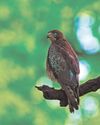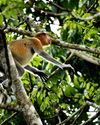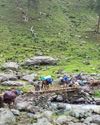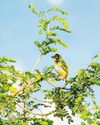One of the largest deltas in the world is threatened by a thermal power plant. Sunderbans is home to a plethora of flora and fauna and the plant might devastate this huge carbon sink. The author shares his deep concern about the consequences of this development project on the world’s most beautiful forests!

THE “SUNDARI” FORESTS
On the far eastern face of India, floating over the strong tidal waves of Bay of Bengal lie the world’s largest delta, the Sundarbans. Drained by two major rivers Ganga and Brahmaputra, it covers more than 105,000 square kilometres in India and Bangladesh, it forms the largest single block of tidal halophytic mangrove forest. “Sundarban” or the beautiful forest is a Biosphere Reserve as well as a World Heritage site. The present Sundarban National Park was declared as the core area of Sundarban Tiger Reserve in 1973, a sanctuary in 1997 and finally a National Park in 1984 encompassing 56 islands.
As we set out at the break of dawn cruising through the creeks, the joy of breathing some fresh air energizes the mind that was in a slumber. The “Sundari” tree (Heritiera fomes) which signifies the essence of “Sundarbans” dominates much of the mangrove forest. However other species such as Gewa (Excoecaria agallocha), Goran (Ceriops decandra), Keora (Sonneratia apetala), Passur (Xylocarpus granatum) and Kankra (Bruguiera gymnorrhiza) add to the diversity. Mangrove forests play a central role in transferring organic matter and energy from the debris and biomass to marine ecosystems and their dense root systems are home to fishes, crabs, shrimps and mollusks. The calmness in the waters is suddenly interrupted by synchronized movements of the rare Irrawaddy dolphins (Orcaella brevirostris). A pod of around five dolphins obliged us with their magnificent presence. We expressed our gratitude in return by shutting down the roaring diesel boat engine and observing them as they maneuvered deeper in to the channels. Sundarbans are believed to have a high population of these elusive mammals, but its vast expanse and numerous water channels makes it a grueling task to sight them.
Denne historien er fra December - February 2017-utgaven av Saevus.
Start din 7-dagers gratis prøveperiode på Magzter GOLD for å få tilgang til tusenvis av utvalgte premiumhistorier og 9000+ magasiner og aviser.
Allerede abonnent ? Logg på
Denne historien er fra December - February 2017-utgaven av Saevus.
Start din 7-dagers gratis prøveperiode på Magzter GOLD for å få tilgang til tusenvis av utvalgte premiumhistorier og 9000+ magasiner og aviser.
Allerede abonnent? Logg på

Staying ALIVE!
The importance of getting to the root causes of conflict with wildlife, is essential. Its mitigation will guarantee the very survival of all species.

Frames from the WILD
A few amazing shots from a horde of incredible ones!

WAKE UP!
A frightening thought a world without wildlife, mornings without birdsong, and all that we take for granted! We must realise the dangers threatening the beauteous green world and its inhabitants around us!

Dolphin DILEMMA!
A crucial article to highlight the significance, and plight of Our riverine friends.

Gecko Quest!
The authors take us on the trail of a gecko from West Bengal, through the hills of the Bankura district.

Endangered EXOTICA!
The author takes us on an exotic ride into the forests of Malaysia, allowing us glimpses of the beauties of its wildlife!

Mellifluous Magpie!
Immerse yourselves in the world of the musical and glorious Magpie Robin! The authors help acquaint us with this beautiful bird.

Think Different!
The author brings to us the very real concern for the horses employed around pilgrimage sites in India.

Take Heed!
The authors make a case for the conservation of the rare and lesser-known Sociable Lapwing.

Close Encounters!
The author introduces us to two amazing yet very different bird species, showing us the diversity of our ecosystems,